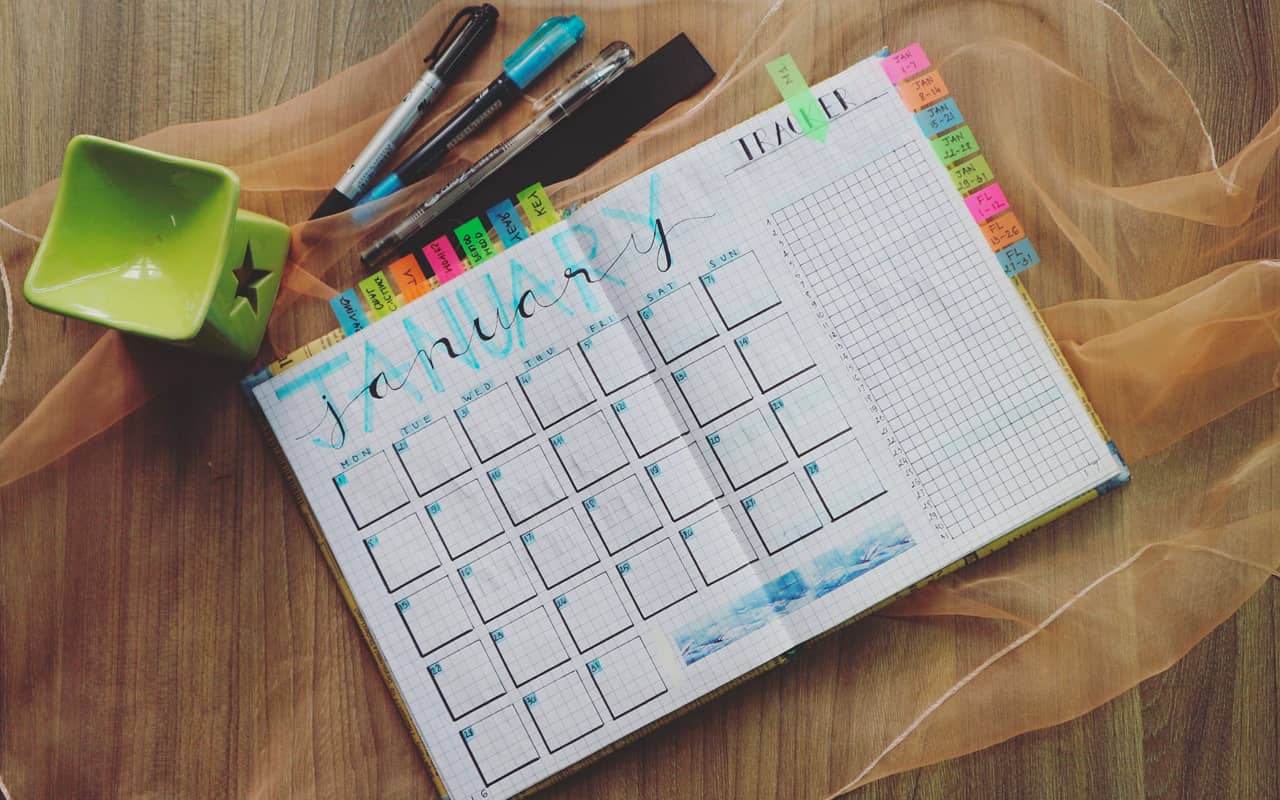 Are you ready for the shocking truth about how long it takes to learn a language?
Are you ready for the shocking truth about how long it takes to learn a language?
No, the answer is not “it depends.” Although it is in part up to you.
The answer actually comes down to the stages involved in language learning and the definition of “fluency” you use.
Let’s look at a few definitions before we get rolling.
Basic Fluency = 600-2200 Classroom Hours
According to the Foreign Service Institute from the U.S. Department of State, basic fluency can be achieved in between 600-2200 hours of study in a classroom.
They divide the languages by difficulty, with languages like Danish, Italian and Norwegian requiring fewer hours. “Super-hard” languages like Mandarin Chinese require more.
For other classification systems, you can check out:
- The Common European Framework of References for Language (CEFR)
- The Defense Language Institute (DLI)
- The American Council of Teaching Foreign Languages (ACTFL)
- Interagency Language Roundtable (ILR)
The Problem With Making Language Learning A Numbers Game
I find these hour-based findings troubling.
For example, I once completed a “Zertifikat Integrationskurs” for German in Berlin. I did over 600 hours of in-class training at the Volkshochschule Tempelhof-Schöneberg.
The only problem was… although I passed the tests, I could still barely speak German. And all those hours spent really didn’t amount to much.
Of course, I did wind up learning German to a fairly high standard, but it was only after working on my own by getting ample doses of:
- Reading
- Writing
- Speaking
- Listening
- Memory Palace applications
How many hours exactly I spent is unknown. And to be honest, I don’t really care because I want to spend the rest of my life being able to use German well.
But what I do know is that after I took the reins into my own hands, within a few months, I was able to give public presentations in German.
Having a specific focus in the ways we’ll talk about further down this page helped me progress so much faster.
In this case, my focus was on film studies, which meant I could learn a lot faster and harness the power of interest and passion.

For more on how I learned this language, here’s the full story behind my International Bestseller, How to Learn and Memorize German Vocabulary.
A New Definition of Fluency?
Unlike my German, which remains fairly strong, my Chinese is significantly weaker. However, I was entered into a course at level three after an entrance exam and passed with flying colors.
And the more time I spend on Chinese with a specific focus on particular areas of interest, the more my skills with the language improve.
That’s why I’ve come to prefer this definition of fluency:
The ability to understand and be understood in a language for completing goals.
The more “fluent” you become, the more goals you can complete.
Why Properly Defining Your Fluency Matters
This definition is really important when it comes down to understanding the language learning journey.
Why?
Because not one amongst us is fully fluent in our own mother tongue!

Not a brain surgeon? Good luck holding a conversation about how this topic relates to neuroscience. You just won’t have the vocabulary or pattern recognition needed to do it in any meaningful way.
But if you want to learn the lingo of that field, you can complete goals in it, such as holding a relatively complex conversation.
How To Come Up With A “Legit” Personal Definition For Fluency
For language learning expert Benny Lewis, it’s what he goals “social equivalency.” It’s not about passing tests or winning academic awards. It’s about feeling comfortable and confident while speaking.
For memory stunts, I’ve done the test-passing thing. Passing a test is definitely not fluency, and the hours to learn a language in this way can be as brief as your memory skills permit.
To come up with your own definition, I suggest you decide what it is you want to be able to do in the language. Is it to hold conversations? Or do you need to study physics from a specialist who is not translated into your mother tongue?
Asking and answering these questions for yourself will be key. So with these critical points in mind, let’s look at the many factors that will either accelerate your path to fluency, or hinder it.

I prefer the factors that move your forward quicker. How about you?
How Long Does It Take to Learn a Language? 7 Factors That Impact the Answer
Again, how you define “fluency” is a governing factor. No one has complete fluency in any language, not even the greatest scientists of language who have mastered all the best books on linguistics.
To make the journey to meaningful fluency as short as possible, here’s what I suggest:
One: You Need To Take Tests With A Grain Of Salt
Getting you to spend your money on certifications is a big business in the language learning world. But passing tests is not speaking a language fluently.
Of course, self-testing is important, but you need to get involved in what the test results mean according to your well-defined goals.
As an example, you can set yourself the goal of having 10 conversations about 10 topics within a year.
Record the conversations and go over them with a native speaker of the language you’ve hired as a tutor. Ask them to score you on each topic from 1-10. Also ask them to prepare specific notes for vocabulary and grammar improvements you need.
This form of testing will be much more meaningful to your progress and save you tons of time in the end.
However, if you want or need a test because you’re learning a language for work or business, make sure to interview the examiners and do plenty of research. There are many acronyms and confusing regulations, so it pays to make sure that your certification counts.
Two: Classroom Courses Need To Be Completed With Caution
Although I didn’t really start learning German in any substantial way until after my classes ended, I do like taking courses. The time to learn a language involved is focused and compressed and there is nothing else to rob your attention in the environment.
A major problem in my course is that it was for immigrants, and many people didn’t want to be there. They spent most of the time talking in their own languages while a passive instructor did almost nothing to return focus to German.
By contrast, the Mandarin course I took had an excellent teacher and I learned a lot in his course. I also knew a lot more about how to work with language learning teachers by this point.
The best part?
I also made friends with my teacher and have been able to help him improve his English too.
Along the way, we used a simple texting and voice-messaging app to trade lessons and tips back and forth.
But at the end of the day, tailoring and recording your experiences with your teachers is better than most classroom based courses. I probably could have done just as well without once showing up to the classroom.
If you’re interested in using communication apps to help accelerate your language learning, I share one particular program and process I use in this rundown of the best language learning software.
Three: Use Textbooks And Online Courses Tactically
Many people get caught up in “new shiny book syndrome.” Instead of finishing the books they have, they rush to buy more, hoping that the next one will help them learn their language by osmosis.
Instead, be thorough with your materials. Really milk each book and program for all they’re worth before moving on to the next. Some of the best books for language learning I know are inherently readable: The Teach Yourself series by Olly Richards.
To make sure you’re getting the most out of everything you read, please consider learning the Memory Palace technique, especially the version that comes with a special emphasis on language learning. You can get start mastering it here:
Four: Schedule Your Time And Be Consistent
The problem so many language learners face is not how long learning a language takes, or how difficult the journey. Rather, they struggle with showing up consistently.
There’s no cookie cutter schedule anyone can hand you. You need to learn to create your own. A suggested schedule you can model might look like:
- Monday mornings and evenings: Listening and reading (15-30 minutes each session)
- Tuesday and Thursday afternoons: Speaking practice (45 mins)
- Wednesday mornings and evenings: Reading and writing practice (15-30 minutes each session)
- Friday: Watch a movie in your language
- Saturday: Rest
- Sunday: Review all material from the week and prepare next week’s materials
Of course, you can add more by intermittently performing these kinds of activities throughout your days:
- Listening to music in your language
- Speaking to yourself to practice active recall
- Looking up interviews with your favorite celebs in the language
- Following your favorite teachers on Instagram and committing the phrases they share to memory
- Operate your smartphone in the language you’re learning
The trick to scheduling your language learning activities is to practice planning. It’s a skill on its own and the sooner you start developing your organizational skills, the sooner you’ll benefit from structuring your time.
Five: Use Memory Techniques
Memory techniques have been used for thousands of years. When used well, they harness the power of spaced repetition and your natural imagination.
Here are a few tricks you can try:
If you have any doubt about their efficiency, check out Noel Van Vliet. He tested the Magnetic Memory Method and crunched the numbers.
According to Noel, he learned 127 words at a rate of 1 word every six minutes.
Compared to rote learning, this case study shows that mnemonics provide a fantastic alternative. And there are scientific studies that back this up too, such as the recent research provided by scholars David Reser and Tyson Yunkaporta.
Back to anecdotal studies, Lynne Kelly provides early reports on her progress with Mandarin in Memory Craft. As of 2023, I still see her posting on Facebook about her journey with the language – it sounds like she’s still making great progress thanks to her use of mnemonics.
Six: Manage Your Mindset
So many people crush their progress with “I can’t” statements.
If you believe that, then I’m afraid you’re probably going to prove yourself right.
Without a doubt, the mental strength needed can be its own journey. But for rapidly silencing the monkey mind chatter that holds you back, try this simple technique:
Mindset for language learning is so critical because we simply cannot afford the time lost to self punishing thoughts. This study found that many people spend 47% of their waking time on useless thoughts. Worse, another study found that persistent negative thinking increases the risk of Alzheimer’s.
On the positive end of the scale, if you can get your mindset straight and learn a language, studies of bilingualism demonstrate that many people experience protection about Alzheimer’s and Dementia.
Seven: Track Your Results
Can adding yet another task help you learn a language faster?
Yes. And this is because it stimulates your observation skills. By honestly tracking what you’ve done and how you felt about it, you get feedback that leads to the metaskill of learning.
For example, when you journal, you’ll be able to:
- Exactly how much time you’re spending (not how much you think you’re spending)
- Jot down words and phrases you realize through experience you need to learn
- Identify mindset issues that you need to work on
- Find features and characteristics of the language that lead to greater understanding
It’s worth the time and as they say, you can only measure what you manage. Journaling your journey is a great way to create focus and accelerate your journey.
How Long Does It Take To Become Fluent In A Language?
Again, I think everything comes down to your personal definition and how you create and track your activities. Concentration is everything when it comes to language learning, especially the locations you choose for your precious study time.
Many people make great strides in very short periods of time, and all of the factors listed above are crucial to their success.
Quite a few polyglots list between 4-6 hours of daily practice. I’m not as good as them, but I’ve only gone after proficiency at general levels. If I wanted to reach an expert level in any language, I would spend that amount of time too.
However, I’ve done that with German and it didn’t get me very far. Sure, I got the certificates after passing the exams, but it was only after I started living in the language that I developed my skills more substantially.
And when that happens, it’s not really a question of how many hours a day you spend. It’s what you do with your day. If I had to boil the core of my German experience down to do things, it would be these:
- Reading
- Speaking
I’d always spoken a lot in the language, but it was really reading above all that created the greatest boost. This was especially helpful because I was able to memorize new words and phrases rapidly.
The cool thing is that you can double-down on reading by watching movies with the subtitles in the target language switched on. (Of course, in a non-Latinate alphabet, the complexity will be quite different, so keep that in mind.)

How Long Does It Take To Master A Language
“Mastery” is the perfect word we need here.
That is because the true master never stops studying and practicing. Just as we can always learn more about our native language, so too does the learning journey never end for any other language.
Perhaps you want to go further than one language and start becoming a polyglot by learning two languages at the same time. Or perhaps you just want to start learning one language as a beginner while immersing in it at home.
No matter what, the point remains the same:
Fluency is a journey with no end. The amount of consistency and focus you bring is more important than how long you spend. You really can pack a lot into shorter periods of time, but it’s regular focus over time and mindset that will make the biggest difference in the end.
In sum, there’s no doubt that hundreds of hours are going to be involved and now you have a sense of the range. As mentioned, I don’t think it ever makes sense to turn learning a language into a numbers game, but you certainly can reduce the hours needed by following the simple principles we covered today.
So the real question is:
Are you ready to take the reins in your own hand and get involved in crafting the journey?
Related Posts
- The Most Controversial Language Learning Technique In The World
In this episode of the Magnetic Memory Method Podcast ... controversy about using mnemonics in…
- Stoic Secrets For Using Memory Techniques With Language Learning
Christopher Huff shares his Stoic secrets for using memory techniques when learning a language. You'll…
- Teach Yourself Using The Best Language Learning Books By Olly Richards
Olly Richards shares the background to his Teach Yourself language learning short story series of…









